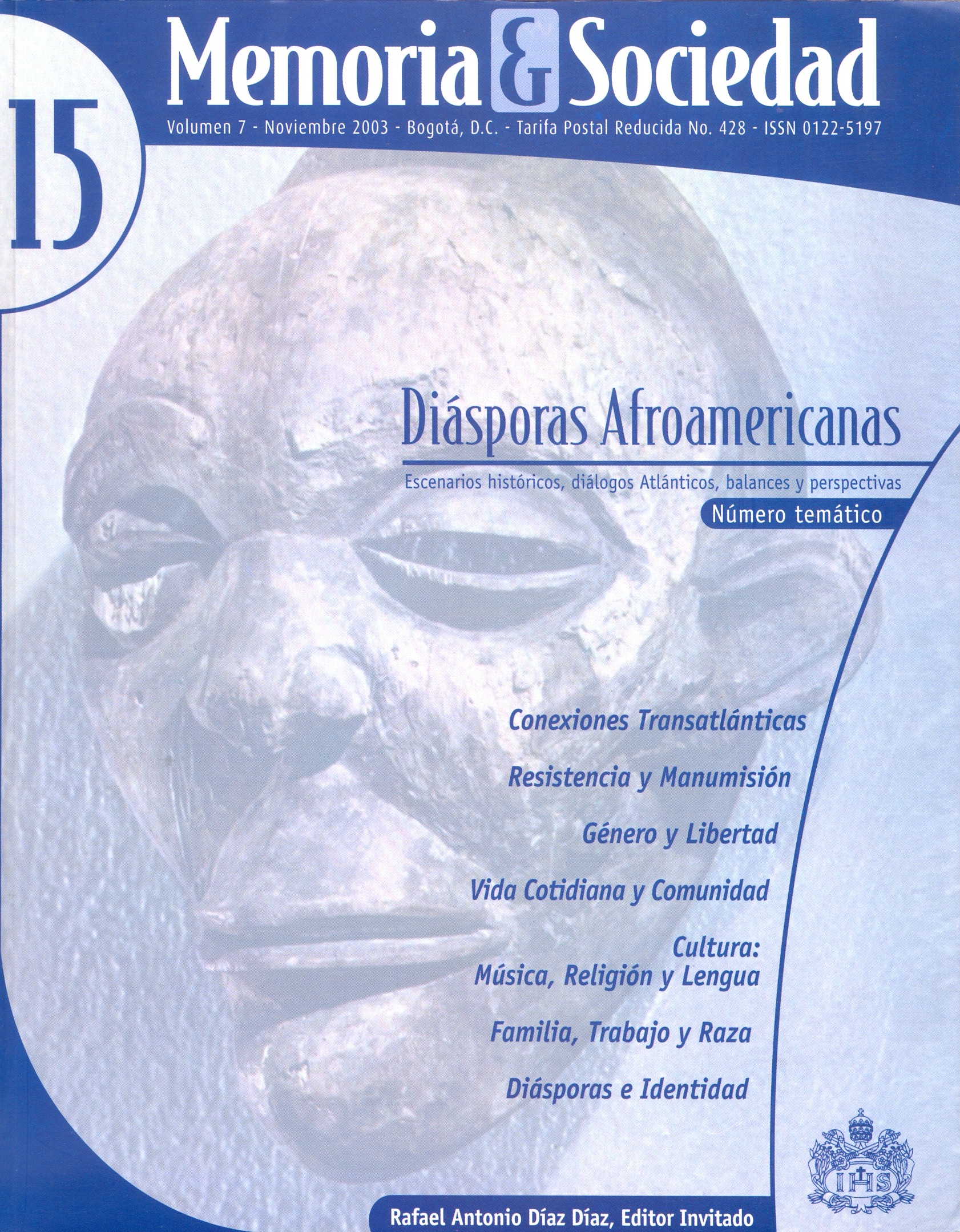Abstract
The article describes representations of Afro-Argentine identities and its interaction with the hegemonic discourse of a national and cultural Argentine identity, referring to Afro-Argentine texts form the 19th century Buenos Aires. Departing from a brief summary of the construction process of the Argentine nation as an imagined community of white, male citizens, it shows how the black porteño elite on the one hand inscribes the Afro-Argentines in the hegemonic discourse and, on the other hand, establishes certain forms of counter discourse, both to affirm and legitimize their status as members of the national community.The journal Memoria y Sociedad is registered under a Creative Commons Attribution 4.0 International Public License. Thus, this work may be reproduced, distributed, and publicly shared in digital format, as long as the names of the authors and Pontificia Universidad Javeriana are acknowledged. Others are allowed to quote, adapt, transform, auto-archive, republish, and create based on this material, for any purpose (even commercial ones), provided the authorship is duly acknowledged, a link to the original work is provided, and it is specified if changes have been made. Pontificia Universidad Javeriana does not hold the rights of published works and the authors are solely responsible for the contents of their works; they keep the moral, intellectual, privacy, and publicity rights.
Approving the intervention of the work (review, copy-editing, translation, layout) and the following outreach, are granted through an use license and not through an assignment of rights. This means the journal and Pontificia Universidad Javeriana cannot be held responsible for any ethical malpractice by the authors. As a consequence of the protection granted by the use license, the journal is not required to publish recantations or modify information already published, unless the errata stems from the editorial management process. Publishing contents in this journal does not generate royalties for contributors.

